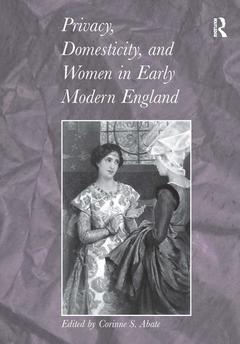Description
Privacy, Domesticity, and Women in Early Modern England
Coordinator: Abate Corinne S.
Language: English
Keywords
Young Man; lady; Lady Mary Wroth’s Urania; mary; Lady Mary Wroth; wroth; Montgomery’s Urania; Elizabeth Mazzola; Mary Wroth; Lisa Hopkins; Grave Lady; Kathryn Pratt; Cavendish’s Poems; Nancy A; Gutierrez; Wroth’s Text; Theodora A; Jankowski; Margaret Cavendish; Catherine G; Canino; Redcrosse Knight; Sheila T; Cavanagh; Indistinguished Space; Cristina Len Alfar; Broken Heart; Faerie Queene; Act III; Emma Fielding; Spousal Contracts; Enforced Marriage; Dangerous Error; Early Modern Home; Appleton House; Symbolic Economy; Female Love Object; Knight Errant; Public Speech Act; Orphane Place
Publication date: 04-2003
Support: Print on demand
Publication date: 10-2016
· 15.2x22.9 cm · Paperback
Description
/li>Contents
/li>Biography
/li>




